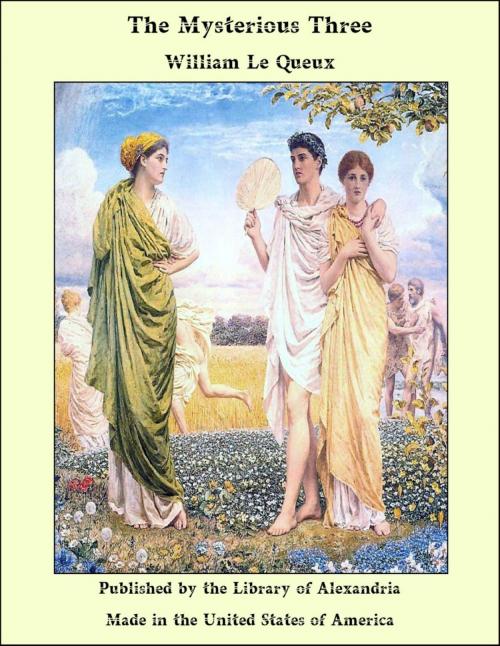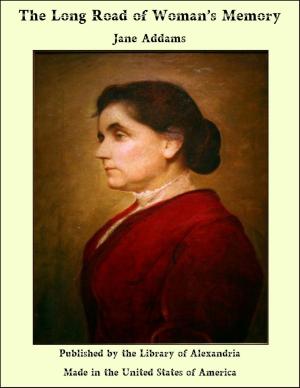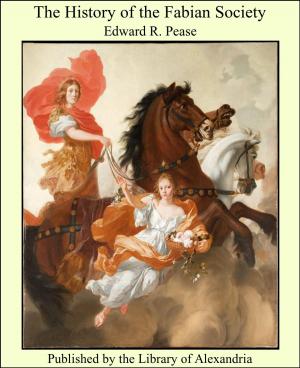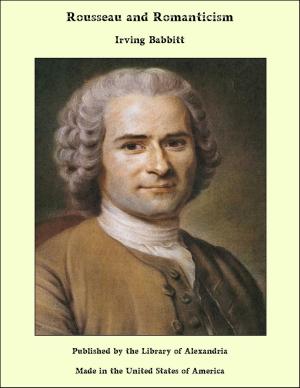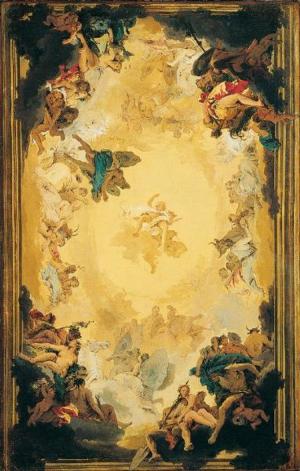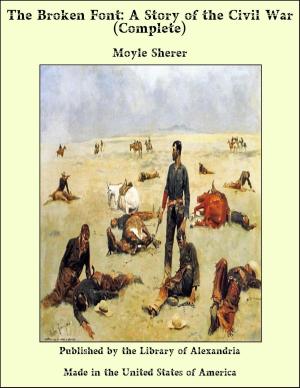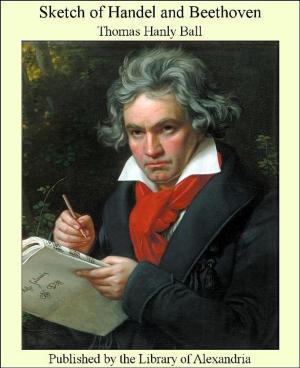| Author: | William Le Queux | ISBN: | 9781465552785 |
| Publisher: | Library of Alexandria | Publication: | March 8, 2015 |
| Imprint: | Language: | English |
| Author: | William Le Queux |
| ISBN: | 9781465552785 |
| Publisher: | Library of Alexandria |
| Publication: | March 8, 2015 |
| Imprint: | |
| Language: | English |
“Do you know a Mr Smithson, Gwen?” Sir Charles Thorold asked his wife abruptly as he stood astride before the big fire in the hall. “Smithson?” Lady Thorold answered as she poured out the tea. “No. Who is he?” “I have no idea. Never heard of him.” Then, addressing the butler, Sir Charles asked anxiously— “Did he leave a card, James?” “No, Sir Charles. He asked to see you—or her ladyship.” “Or me?” Lady Thorold exclaimed. “Why, how very mysterious. What was he like?” “A tall, powerfully-built man, m’lady.” “A gentleman?” “M’yes, m’lady. He came in a car.” As James said this in his grave, solemn way, I saw Vera Thorold’s eyes twinkle with amusement. For Sir Charles’s only child possessed that gift rare in a woman—a sense of humour. “You are sure you have the name right?” Thorold said, after a moment’s pause. “Quite, Sir Charles. I think he was not going to give his name, as you were out. I asked him what name, and he seemed to hesitate, then he said: ‘Oh, say Mr Smithson called, Sir Charles knows me,’ and then he seemed to smile, Sir Charles.” “He seemed to smile. I wonder why?” His master turned to Lady Thorold. “What do you make of it, Gwen?” “I make nothing of it,” replied his wife. “Is it some friend of yours, Vera?” “Mother, how ridiculous,” the girl exclaimed; “as if I should have a friend called ‘Smithson’!” “Pardon me, Sir Charles, but—” broke in the butler. “Well, what?” “There is a portrait of him in the morning-room.” “A portrait?” gasped his master. “A portrait of Smithson! Then why the deuce didn’t you say so before! Which is it? I should really like to know.” “There are so many portraits in the morning-room,” Lady Thorold interrupted, “we had better go in, and James will show us which it is. He may have mistaken the name, after all.” We all got up from tea in the hall, made our way to the drawing-room, and thence into the morning-room, which opened out of it. There was plenty of daylight still. James came in after us, and went straight up to a framed panel portrait which stood with others on a small table in a remote corner. It showed a tall handsome, clean-shaved man of three or four and thirty, of fine physique, seated astride a chair, his arms folded across the back of the chair as he faced the camera.
“Do you know a Mr Smithson, Gwen?” Sir Charles Thorold asked his wife abruptly as he stood astride before the big fire in the hall. “Smithson?” Lady Thorold answered as she poured out the tea. “No. Who is he?” “I have no idea. Never heard of him.” Then, addressing the butler, Sir Charles asked anxiously— “Did he leave a card, James?” “No, Sir Charles. He asked to see you—or her ladyship.” “Or me?” Lady Thorold exclaimed. “Why, how very mysterious. What was he like?” “A tall, powerfully-built man, m’lady.” “A gentleman?” “M’yes, m’lady. He came in a car.” As James said this in his grave, solemn way, I saw Vera Thorold’s eyes twinkle with amusement. For Sir Charles’s only child possessed that gift rare in a woman—a sense of humour. “You are sure you have the name right?” Thorold said, after a moment’s pause. “Quite, Sir Charles. I think he was not going to give his name, as you were out. I asked him what name, and he seemed to hesitate, then he said: ‘Oh, say Mr Smithson called, Sir Charles knows me,’ and then he seemed to smile, Sir Charles.” “He seemed to smile. I wonder why?” His master turned to Lady Thorold. “What do you make of it, Gwen?” “I make nothing of it,” replied his wife. “Is it some friend of yours, Vera?” “Mother, how ridiculous,” the girl exclaimed; “as if I should have a friend called ‘Smithson’!” “Pardon me, Sir Charles, but—” broke in the butler. “Well, what?” “There is a portrait of him in the morning-room.” “A portrait?” gasped his master. “A portrait of Smithson! Then why the deuce didn’t you say so before! Which is it? I should really like to know.” “There are so many portraits in the morning-room,” Lady Thorold interrupted, “we had better go in, and James will show us which it is. He may have mistaken the name, after all.” We all got up from tea in the hall, made our way to the drawing-room, and thence into the morning-room, which opened out of it. There was plenty of daylight still. James came in after us, and went straight up to a framed panel portrait which stood with others on a small table in a remote corner. It showed a tall handsome, clean-shaved man of three or four and thirty, of fine physique, seated astride a chair, his arms folded across the back of the chair as he faced the camera.
